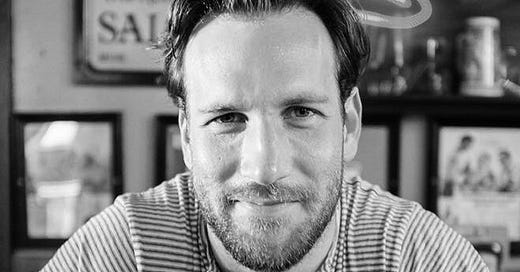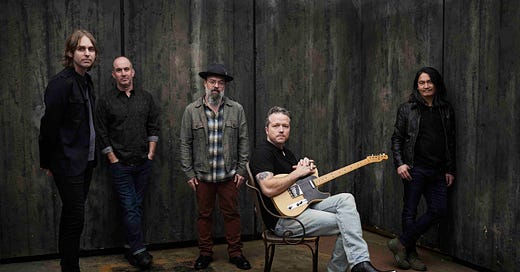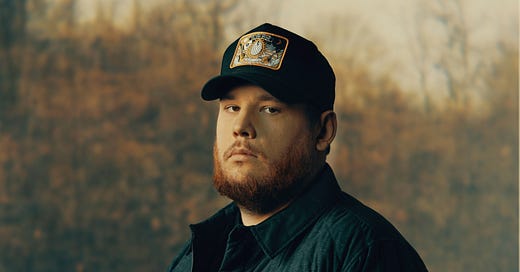
People are wrong about Nashville just as much as they are right. Far too many people view this town as one split right down the middle by an impenetrable, uncrossable line: a line made up of imaginary authenticity tests and fabricated ideas of mainstream vs. “outlaws,” a line that separates the “real” songwriters from the commercial ones, a line that is base and binary and untrue. When I moved here, I became fascinated with exploring the people who exist all across the Nashville (and Music Row) spectrum – the songwriters or artists who might have a number-one cut under their belt that you dismiss as radio fodder but are just as dynamic, brilliant and interesting as the ones who aesthetically signal as “rebellious.” There are rooms of these people right now, writing some songs to make a living, some songs just for the heck of it and some songs that are the greatest things on earth that you’ll simply never hear.
Abe Stoklasa, who passed away last week, was one of these people. The ultimate one, honestly. Someone who could write anything, play anything, float between songs that work on country radio and the kind of songs that help you understand your own life, your own love, your own fears and dreams better than you could do on your own. He played the saxophone and the steel guitar somehow interchangeably, he sang with soul, he loved the craft deeply and he made sure everyone saw the cracks that often swallowed it. He was a Music Row songwriter and a poet at the same time. He loved the genre of country music so the best way he thought to honor that was by trying to make it a better place, a more open place. He pledged, in 2018, to always do his best to make sure he had a woman in the writing room. He spoke out loudly and often in defense of creating space for anyone but white, straight folks. His memes were hilarious and bizarre – how did his brain work like that? “Irreverent” doesn’t cut it.
I first got to know Abe in 2017, around the time I was reporting on Charlie Worsham’s album, Beginning of Things. Abe had a few cuts on the LP – the title track was a co-write with close creative partner and friend Donovan Woods. It’s one of those life-changing kinds of songs: the kind that helps you recognize your own tendencies before they hurt you or others, the kind that understands every side of us imperfect humans. Charlie delivers it gorgeously – the whole album is timeless, terrific, heartbreaking and funny. They were a perfect pair.
We stayed in touch after that, and I am guessing my story is not unique. I’m guessing many of you have DM’s and texts filled with thoughts from Abe, whether you met him in person or not. He had so much to say and he wanted to share it. He didn’t put up a wall between himself and anyone else. No one was lower than him or less important. He didn’t use his success to exist on a separate, comfortable plane.
Abe’s songs went to number one – “Fix,” for Chris Lane – and received a Grammy nomination, for Charles Kelley’s “The Driver.” His songs were cut by Tim McGraw, Blake Shelton, Billy Currington and Lady A, too, but he also wrote ones you haven’t heard yet with likeminded Nashville songwriting treasures like Kate York and Sarah Buxton. His work often charted his inherent love for music and for this town even when it hurt like hell: “one day you're the king, and the next you're not,” he co-wrote on “Leaving Nashville,” alongside Donovan Woods. “It's handshakes and whiskey shots, boy, and throwing up in parking lots all by yourself. But I ain’t never leaving Nashville.”
It would have been a safe route for Abe to keep his head down and just write songs, but that wasn’t him. He’d text me frequently about things he wanted to fight for – racial and gender inequality, rights for songwriters, a Nashville that opened its doors wide to good songs and better people – and became a frequent source because of it. He didn’t shy away from calling out his fellow songwriters, especially other men. I don’t know for sure, but I guess it didn’t do him any favors, though it meant the world to those he was fighting for.
The happiest conversations we had were just about songs he’d written, a sous-vide he’d just sous-vided or when he spoke about his years starting out in 2013, 2014, when he and his collaborators – often Maren Morris, Kate York, Chris Gelbuda and others, would hole up at East Nashville bars after long sessions in the room, talking and smoking until closing time. He told me a story that made it into my book about how Maren was visibly upset when she thought she lost her first cut:“I remember her getting very emotional when she thought she had lost what would be her first cut with Tim McGraw on the Sundown Heaven Town record,” said Abe about the song Tim did eventually record, “which happened to be my first cut too (different songs, same record). She wasn’t angry or ungrateful but she was tearing up in the office one day. It was her baby. Most writers shake it off and move on or carry a chip on their shoulder. She just was really disappointed and let it out and then moved on. I think that says something about how deeply she cares about her compositions as opposed to a lot that go for quantity over quality. I hadn’t ever seen anybody be so emotionally struck by something like that.”
I think it takes a certain kind of person, one so full of empathy themselves, to see this in someone else: he could see someone else care so much about songs, because he cared so much about songs. About art (just watch this video on Chris Housman’s page of him crying to Aretha Franklin). He cared enough to recognize this moment in another, and for it to linger in his mind for this long. There’s a line in his song “The Driver,” that I probably should have just published instead of all these words, because they say more about Abe anyway than I ever could:
I'm the dreamer
Soaking up every line
Searching for truth all the time
Oh, yeah, I'm the believer
That music can save us all
I really think he believed it.
- Marissa
















Thank you for honoring my brother! I miss him every day, but good articles, memories, photos and songs help so much! Thank you!
Thank you for writing about Abe. Incredible songwriter. Gone so young.